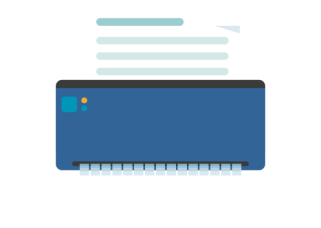
Quicklinks
Top Results

6 reasons to separate your personal and business accounts
Business owners keep track of a lot. One important task that can slip through the cracks is the importance of keeping your personal and business accounts separate. According to a Gallup poll, 77% of small businesses rely on the personal savings of founders for their initial funding.
If that is you, or if you don’t have separate accounts, your personal and business finances are likely commingled. This can create challenges for you down the road that include personal liabilities and more.
Keeping your business accounts separated from your personal checking and savings accounts is essential. Why?
There are many reasons and all of them help you as a small business owner. They range from getting all of the tax deductions you deserve to having a clean balance sheet and obtaining loans or other funding in the future.
Here are 6 reasons to keep your personal and business accounts separate.
Clarity around cashflow
Separate accounts help you know how much money is coming in and going out of the business. It’s important because it helps tell you where to spend money to help grow your company.
Tax efficiencies
As a small business owner, you are entitled to certain tax deductions. Keeping your business expenses and income separate from your personal finances helps to clarify the business numbers for tax purposes. That way, you can deduct all of the allowable expenses as an owner.
Build business credit
As your company grows, there may be a funding need. While not all financial institutions look at a business credit score in the loan approval process, some do. Having a business credit card that you pay each month from a business checking or savings account will help keep track of your business expenses, and show financial institutions that you are responsible with your business money. Most important, it will show them you own a credit-worthy, established business.
Look professional
In addition to having a website and branding materials, you need to have professional ways for customers to pay you and for vendors to receive payments. A separate business checking account helps to accomplish this and provides you with another professional way to interact with the people who will play an important role in your ability to grow your business.
Clear audit trail
Separating your business checking and savings accounts from your personal accounts provides a clear audit trail for accounting purposes. Small and sole proprietor businesses have the potential to be audited at higher rates than larger businesses. Take the added step to open a business checking and savings account to create a clear audit trail of income and expenses. Tip: Credit unions like Civic give you ways to earn money on your account balances.
Future funding needs
And finally, many banks and credit unions require both personal and business financials for any business loan application. This may surprise you. Keeping your accounts separate can provide the needed information quickly, versus delaying the process for you to manually separate out the required financials. Also, if your business may be a candidate for venture capital or other ways to raise money, your financials must be separate. Period.
Keeping your business and personal savings and checking accounts separate give you many benefits. Separate accounts can help you avoid potential tax or audit challenges, provide clarity about your business income and expenses, and help position your company for future funding needs and growth.
See more Civic financial tips for small business owners including which lending options are best for small businesses.
Disclaimer: You + Money blog posts are provided for informational purposes only and are not intended to replace the advice of a financial, legal or accounting advisor.





